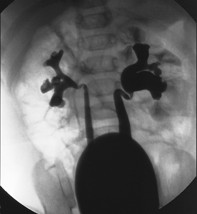Peer Reviewed
Feature Article Urology
Investigating and managing the child with recurrent UTIs
Abstract
Urinary tract infections (UTIs) are among the most common bacterial infections in children. While UTIs may cause significant short term morbidity, most children recover completely and have no long term clinically important sequelae, even when imaging studies demonstrate underlying urinary tract pathology such as vesicoureteric reflux.
Key Points
- A positive urine culture is required to diagnose urinary tract infections (UTIs).
- If the child has no significant fever with UTIs and the initial ultrasound was normal, no further investigation is required.
- In recurrent febrile UTIs, DMSA scans looking for chronic scarring should be performed six to 12 months after the last infection.
- Incomplete bladder emptying could contribute to recurrent UTI.
- The risk for recurrence is greatest in the first year after the initial UTI and declines in subsequent years.
Purchase the PDF version of this article
Already a subscriber? Login here.

